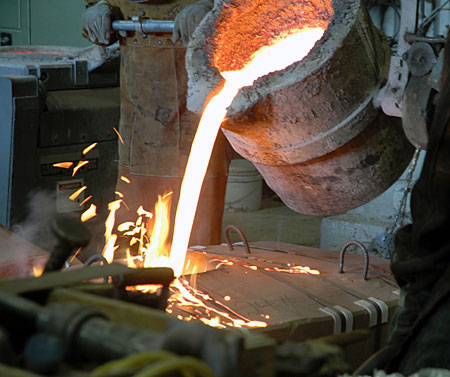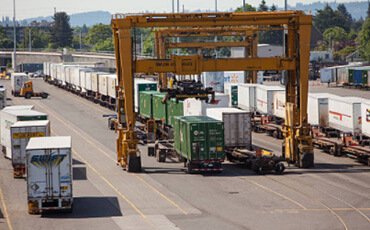
Deciding between Stainless Steel Casting and Cast Iron
April 23, 2021
Permanent Mold Casting Process – The Guide
June 19, 2021What’s The Difference Between Carbon Steel & Cast Steel?
One of the major benefits of investment casting is that is enables a wider range of materials to be used in the casting process. As part of the design process, an infinite choice of alloys can be used, with flexibility to fit all configurations.
Two of the more common alloys used by any steel casting company are carbon steel and cast steel. Though the terms are similar in nature, there are key differences in their meanings, and how it relates to their use in the investment casting process.
In all types of steel, there are various steel casting grades that determine specific properties of the steel, which can help determine their advantages or disadvantages in certain processes. Carbon steel is one type of general groups of steel castings which has a carbon content up to 2.1% in weight. Once the alloy moves above a carbon content of 2.1%, it is then considered to be cast iron.
Cast Steel
Cast steel, then, is a type of carbon steel, often containing a carbon content anywhere from 0.1-0.5% carbon. This is a specific alloy that is frequently used, and is know for its impact resistance features. Carbon and cast steels are especially known for standing out when it comes to withstanding frequent or sudden impact, but not deforming, breaking, or bending.
Cast steel is known for its ability to withstand these types of high stresses and strain forces. In fact, this impact resistance is one of the major benefits of using cast steel compared to cast iron. The combination of strength and ductility in steel make it a staple in mechanical and structural applications, as it is capable of bearing heavy loads. This is one of the major reasons why steel is the most commonly used metal in the world.
Carbon Steel
Carbon steel is also known for being resistant to corrosion, especially when protective measures are used through the course of regular maintenance. It is also resistant to wear and tear, helping increase shelf life and lead to a durable cast. Typically, the amount of carbon content in any carbon steel or cast steel will determine the hardness of the material, with grades ranging from low, standard, to high-carbon steels.
At Intercast, we have maximum flexibility to choose the right alloy for your cast in our steel casting foundry. With over 125 years of experience among our leadership team, we understand the advantages of different alloys and carbon contents, and can help find the right mix depending on your needs. With our status as a maquiladora, we offer real-time solutions to go along with world-class pricing and excellent customer service.
We treat our customers as partners, and we are in it for the long haul, no matter your needs or the industry your business is in. If you are interesting in getting the process started, simply contact us to request a quote for your project, and let us tell you about the advantages that we can provide for our customers.





